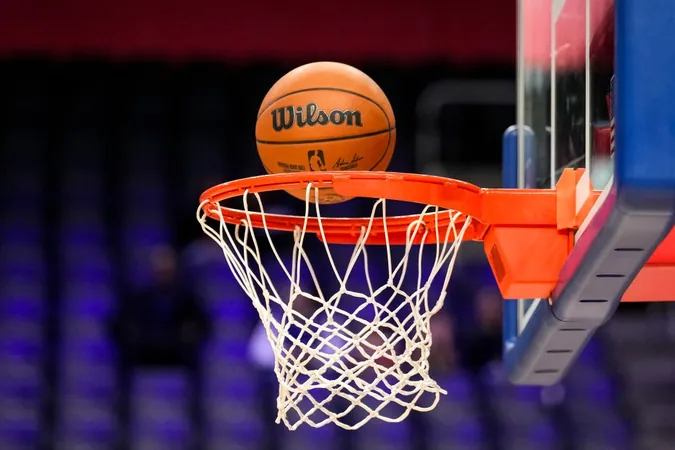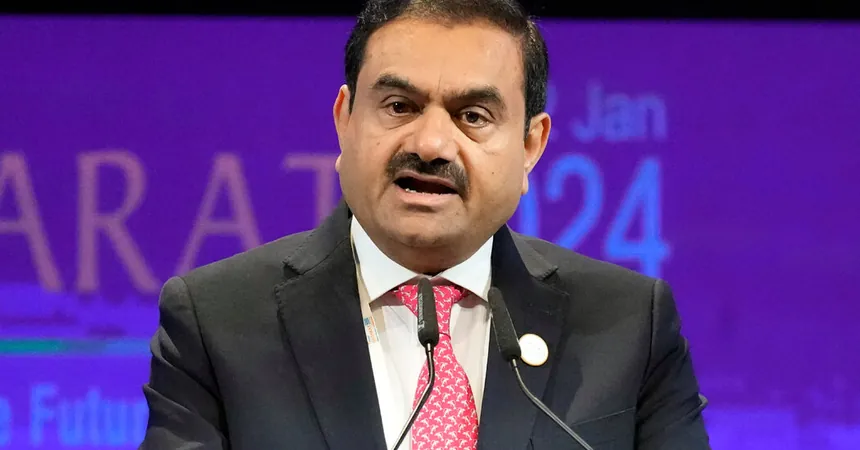
NBA and Warner Bros. Discovery Strike Groundbreaking Deal – What It Means for Future Basketball Coverage!
2024-11-17
Author: Yan
Introduction
The National Basketball Association (NBA) and Warner Bros. Discovery (WBD) are officially resolving their ongoing legal showdown over broadcasting rights, but the implications of their new deal are making waves in the sports media landscape.
Details of the Agreement
Sources close to the situation reveal that, while no court filings have taken place yet in New York, the NBA, helmed by Adam Silver, has come to a significant agreement with WBD, under the leadership of David Zaslav, to put an end to their months-long dispute.
Starting in the 2025-2026 season, WBD's TNT and TBS will lose the rights to broadcast live NBA games. However, this development doesn't spell disaster for the network. In a competitive media environment where Disney’s ESPN, NBCUniversal, and Amazon recently secured a whopping $77 billion deal for NBA coverage over the next 11 years, WBD is not sitting idle either. They have locked in an 11-year agreement to gain access to "NBA highlights & extended content." This content is destined for new shows on TBS and TNT, as well as platforms like House of Highlights and Bleacher Report, which are both owned by WBD.
Expanding Reach
Moreover, WBD will expand their reach by securing NBA broadcasting rights in Latin America—excluding Brazil and Mexico—as well as certain regions in Europe. This move could potentially broaden their audience and rekindle interest in NBA content across these markets.
Legal Context
While neither the NBA nor WBD has publicly commented on the specifics of the settlement, insider information suggests an announcement may be forthcoming before Thanksgiving. The tensions leading to this deal stemmed from WBD’s aggressive legal stance, as they sought to reclaim some broadcasting rights. Following the Olympics, which saw NBCUniversal snapping up premium NBA content, WBD filed suit against the NBA, asserting their right to match any third-party offers.
WBD's argument hinged on the notion that the NBA's actions were unjustified and insisted that they had adhered to their contractual duties. They emphasized their commitment to providing fans with NBA coverage through their extensive portfolio of platforms, including the popular TNT and Max.
Conclusion
As the legal proceedings progressed, the NBA moved to seal certain elements of the case, while WBD faced obstacles aiming to expand their deposition count. This back-and-forth adds complexity to an already intricate situation.
With the shift towards digital consumption and bite-sized media content, WBD's pivot from live game broadcasts to highlight packages could be a strategic maneuver to adapt to changing viewer habits. As fans increasingly turn to streaming platforms for their sports fix, this deal allows WBD to position itself as a flexible provider of NBA content.
Stay tuned as this evolving narrative unfolds, revealing how this groundbreaking agreement will shape the future of basketball broadcasting and consumer experience!


 Brasil (PT)
Brasil (PT)
 Canada (EN)
Canada (EN)
 Chile (ES)
Chile (ES)
 España (ES)
España (ES)
 France (FR)
France (FR)
 Hong Kong (EN)
Hong Kong (EN)
 Italia (IT)
Italia (IT)
 日本 (JA)
日本 (JA)
 Magyarország (HU)
Magyarország (HU)
 Norge (NO)
Norge (NO)
 Polska (PL)
Polska (PL)
 Schweiz (DE)
Schweiz (DE)
 Singapore (EN)
Singapore (EN)
 Sverige (SV)
Sverige (SV)
 Suomi (FI)
Suomi (FI)
 Türkiye (TR)
Türkiye (TR)